1. Dehydration
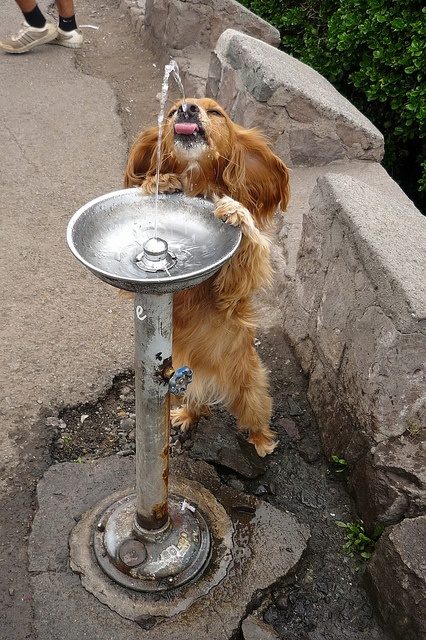
Image Source: Pinterest
Dehydration is a common concern when your body loses excessive fluids, typically through activities like sweating. This fluid loss can disrupt the body's delicate balance, potentially leading to a range of health issues. Staying adequately hydrated is crucial, as dehydration can cause symptoms like dry mouth, thirst, dark urine, and fatigue. In severe cases, it can result in kidney problems, heat-related illnesses, and a decreased ability to regulate body temperature.
2. Heat Exhaustion
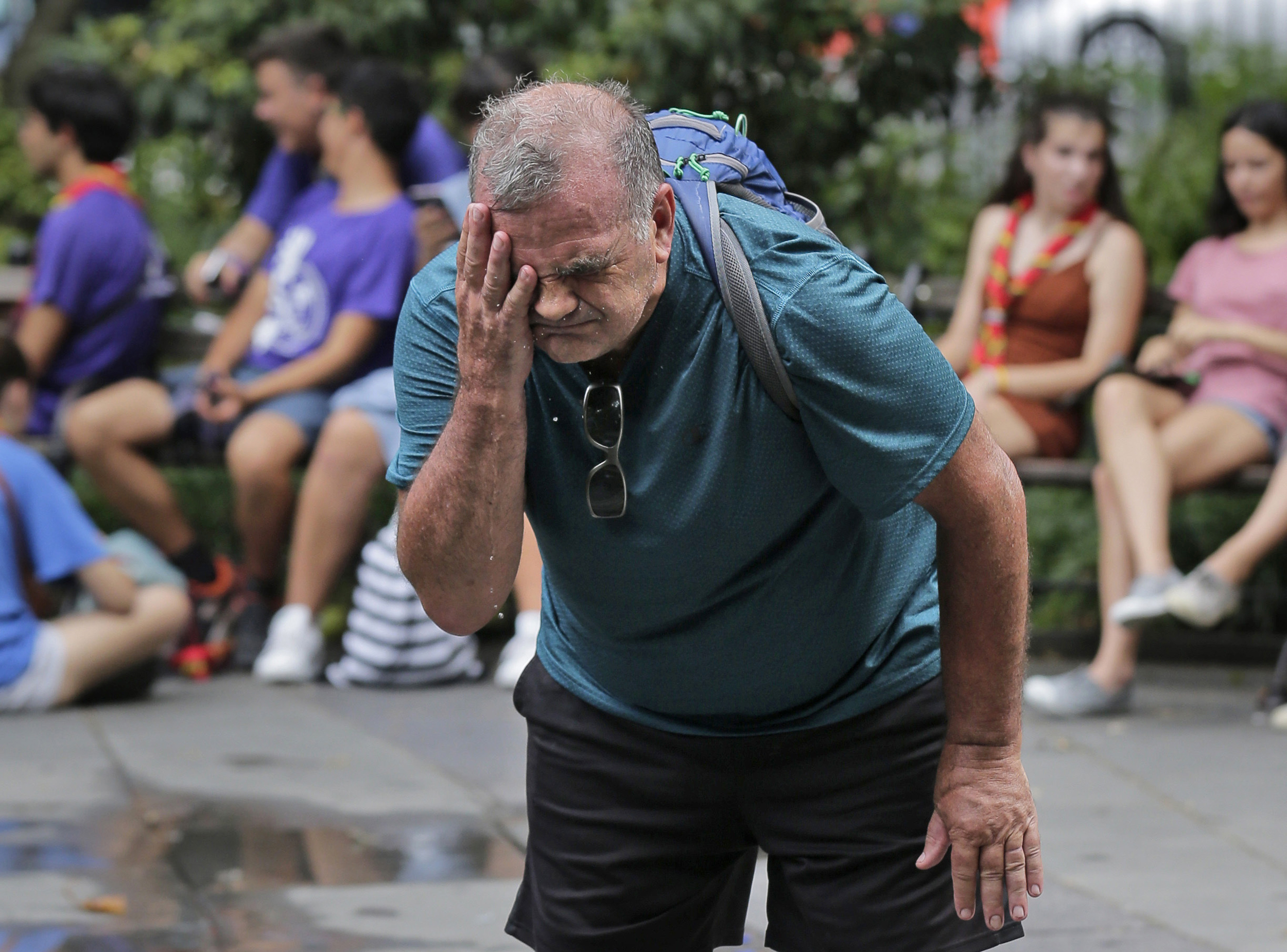
Image Source: NBC News
Heat exhaustion is a condition that often results from prolonged exposure to high temperatures and excessive sweating, which leads to dehydration. It can cause a range of symptoms, including weakness, nausea, dizziness, profuse sweating, and a rapid pulse. Heat exhaustion, while not typically life-threatening on its own, should be taken seriously as it can escalate into heat stroke if left untreated.
3. Heat Stroke

Image Source: Beaumont Health
Heat stroke is a severe, life-threatening condition that occurs when the body's temperature regulation systems fail due to prolonged exposure to extreme heat. Symptoms of heat stroke include an extremely high body temperature, confusion, rapid heart rate, and sometimes even loss of consciousness. Immediate medical attention is essential to prevent permanent damage or death.
4. Sunburn
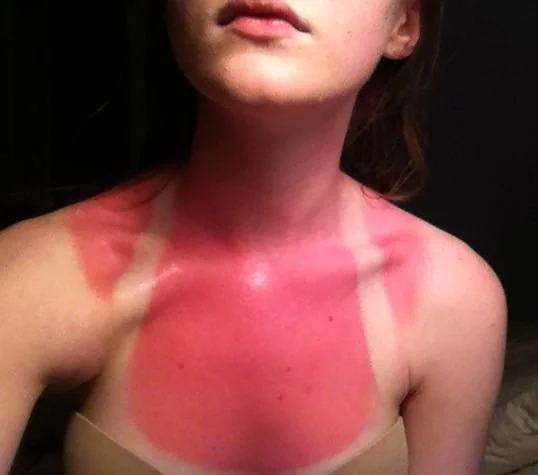
Image Source: Reddit
Sunburn is the painful result of excessive exposure to UV radiation from the sun. When your skin is not adequately protected, UV rays can damage the DNA in your skin cells, leading to redness, pain, and blistering. Sunburn is not only uncomfortable but also increases the risk of skin cancer, making sun protection a crucial aspect of staying healthy in the sun.
5. Heat Cramps
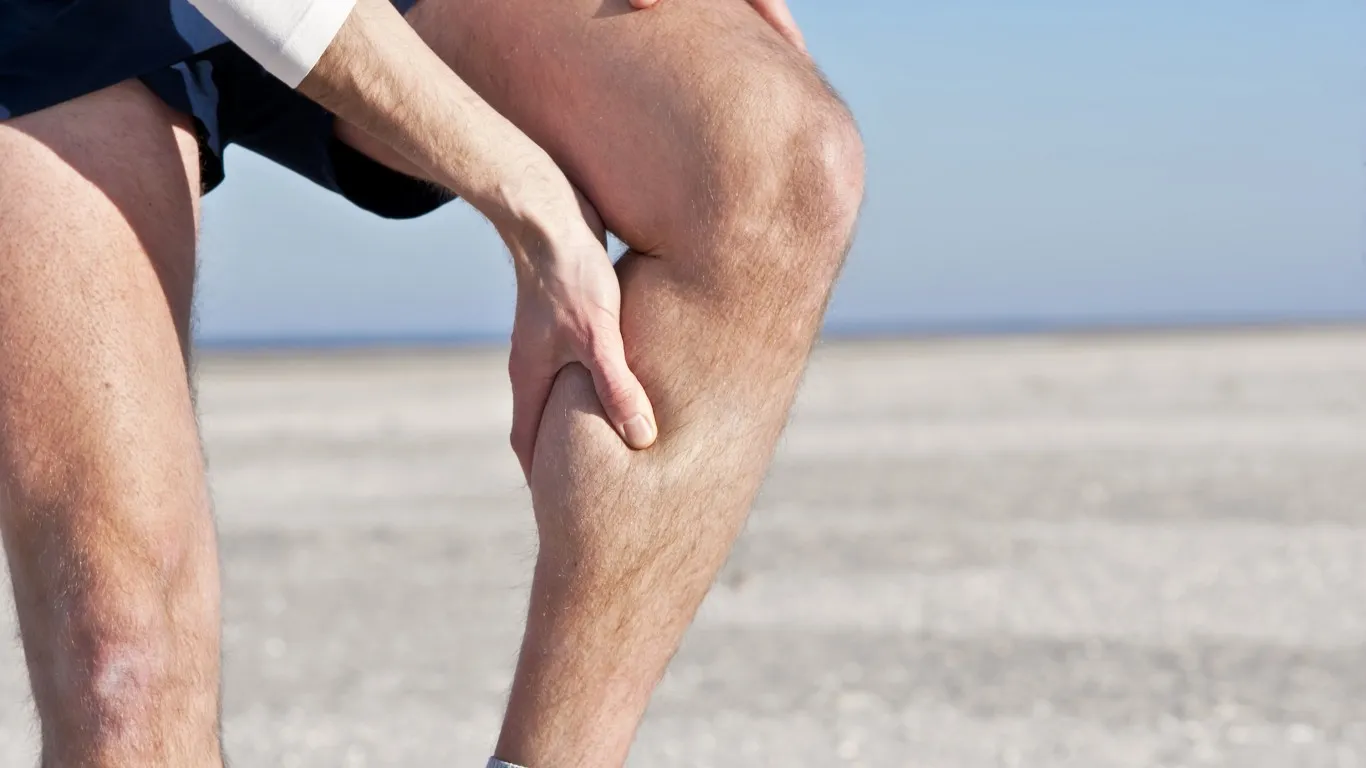
Image Source: USA Today
Heat cramps are painful muscle contractions that often occur during or after intense physical activity in hot weather. They are typically caused by dehydration and imbalances in essential electrolytes such as sodium and potassium. Ensuring proper hydration and replenishing electrolytes can help prevent and alleviate these painful cramps.
6. Heat Rashes

Image Source: Reddit
Heat rashes, also known as prickly heat, result from sweat getting trapped in sweat ducts, causing irritation and redness. These rashes can be itchy and uncomfortable but are generally not a serious health concern. Staying cool, dry, and using gentle skincare products can help prevent and manage heat rashes.
7. Increased Heart Rate
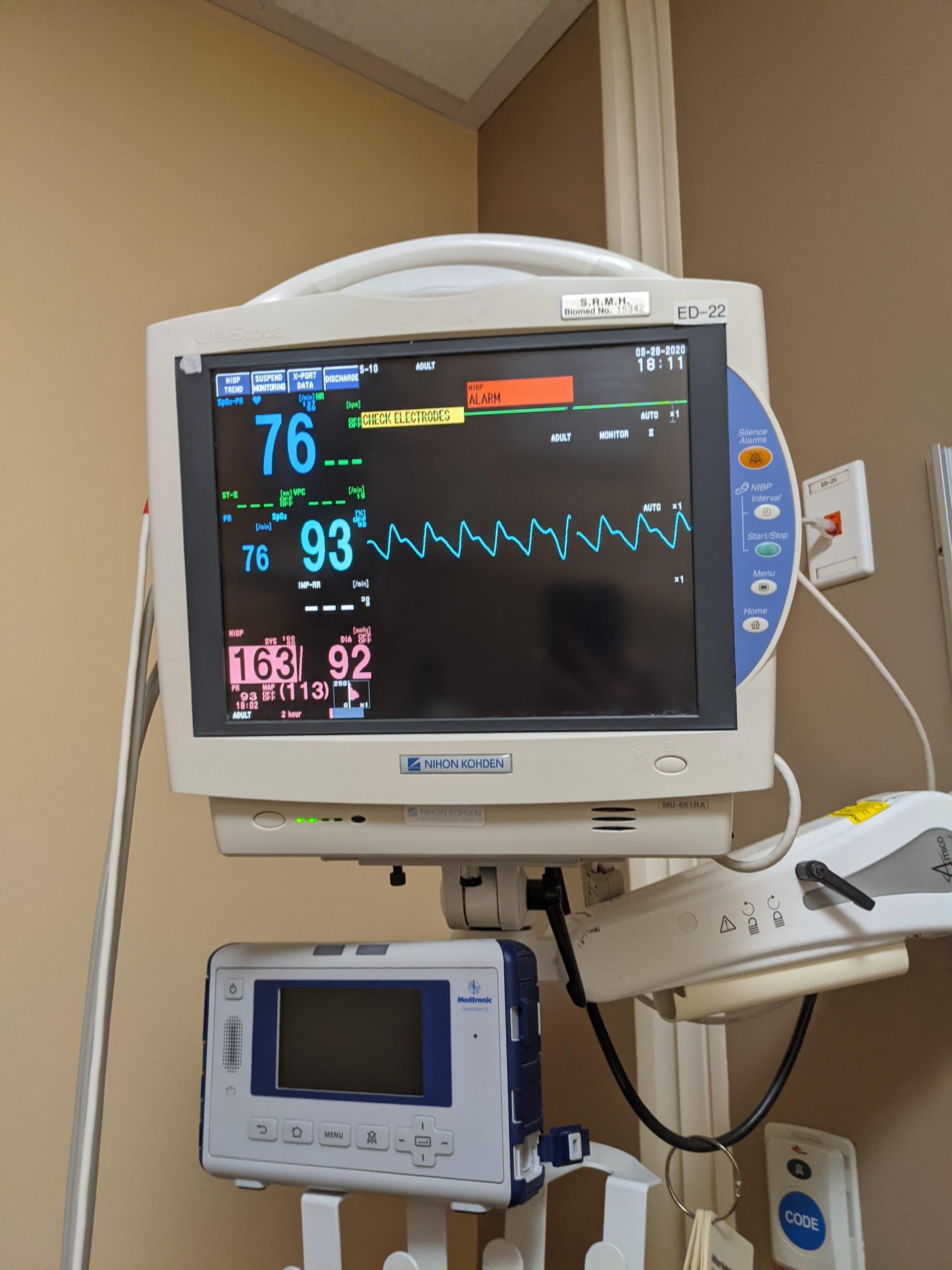
Image Source: Reddit
When exposed to high temperatures, your body's natural response is to increase your heart rate. This is a part of your body's cooling mechanism, as increased blood flow helps dissipate heat. However, a persistently elevated heart rate in extreme heat can be a sign of heat-related stress and should be monitored to avoid more severe conditions.
8. Low Blood Pressure
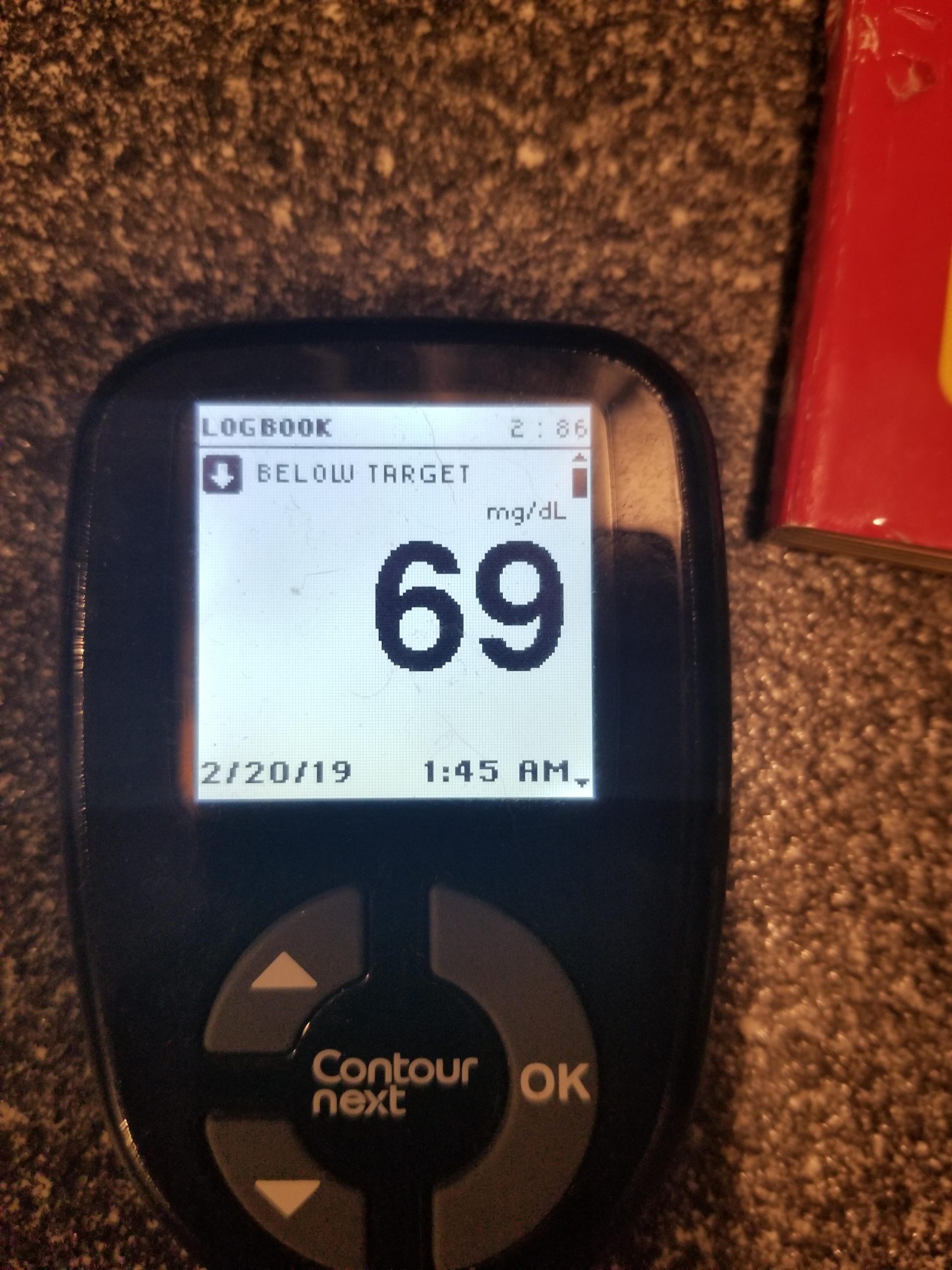
Image Source: Reddit
In conditions of heightened temperature and dehydration, there is a potential for a reduction in blood pressure, which can lead to various symptoms, including dizziness and the risk of fainting. To mitigate this risk, it is imperative to maintain proper hydration by drinking an ample amount of fluids. Additionally, taking regular breaks in shaded areas can be instrumental in preventing the adverse effects of low blood pressure in high-temperature environments. This proactive approach helps ensure that your circulatory system remains stable and your overall well-being is safeguarded.
9. Increased Blood Flow to Skin
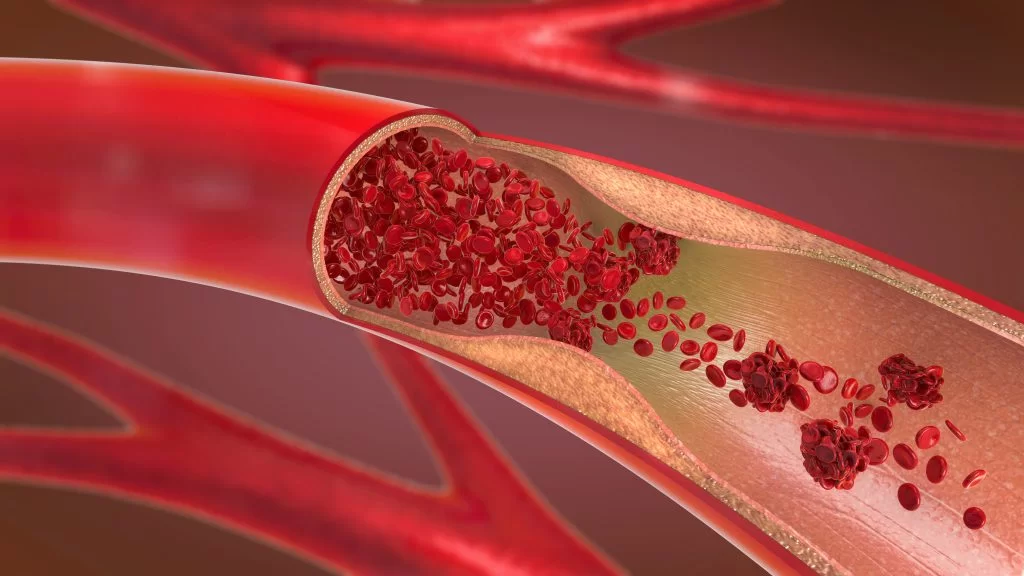
Image Source: ANSYS Innovation Courses
To cool the body, blood flow is diverted from internal organs to the skin, allowing excess heat to be released through sweat and heat radiation. While this process helps maintain your body's temperature, it can also lead to potential complications if it continues for too long.
10. Decreased Appetite

Image Source: Reddit
High temperatures can suppress your appetite. This is a natural response to reduce the heat produced by digestion and to prioritize cooling the body. While a decreased appetite is normal in hot weather, it's essential to continue eating balanced, nutritious meals to maintain your energy levels and overall health.
11. Excessive Sweating

Image Source: Reddit
Excessive sweating is the body's natural cooling mechanism in response to elevated temperatures. When the mercury rises, your body initiates perspiration to dissipate heat. Sweat glands produce moisture, which evaporates from your skin, taking excess heat with it. While sweating is a crucial cooling mechanism, overdoing it can lead to dehydration and the loss of essential minerals, which may necessitate rehydration to maintain proper bodily function in the scorching heat.
12. Heat-Related Headaches

Image Source: Medical News Today
Heat-related headaches often occur due to a combination of dehydration and heat stress. When you're exposed to high temperatures without adequate fluid intake, your body struggles to cool down, potentially causing blood vessels in your brain to constrict. This can lead to the onset of a throbbing headache, which can be debilitating and may necessitate rehydration and staying out of the heat to alleviate the discomfort.
13. Heat-Induced Nausea

Image Source: Healthline
In extreme heat, you may experience heat-induced nausea. The body's response to excessive heat can disrupt your digestive system and lead to feelings of queasiness. Dehydration and the body's effort to cool itself down can trigger this sensation. To combat heat-induced nausea, it's vital to stay hydrated and take refuge in cooler environments to help your body regain its equilibrium.
14. Dilated Blood Vessels
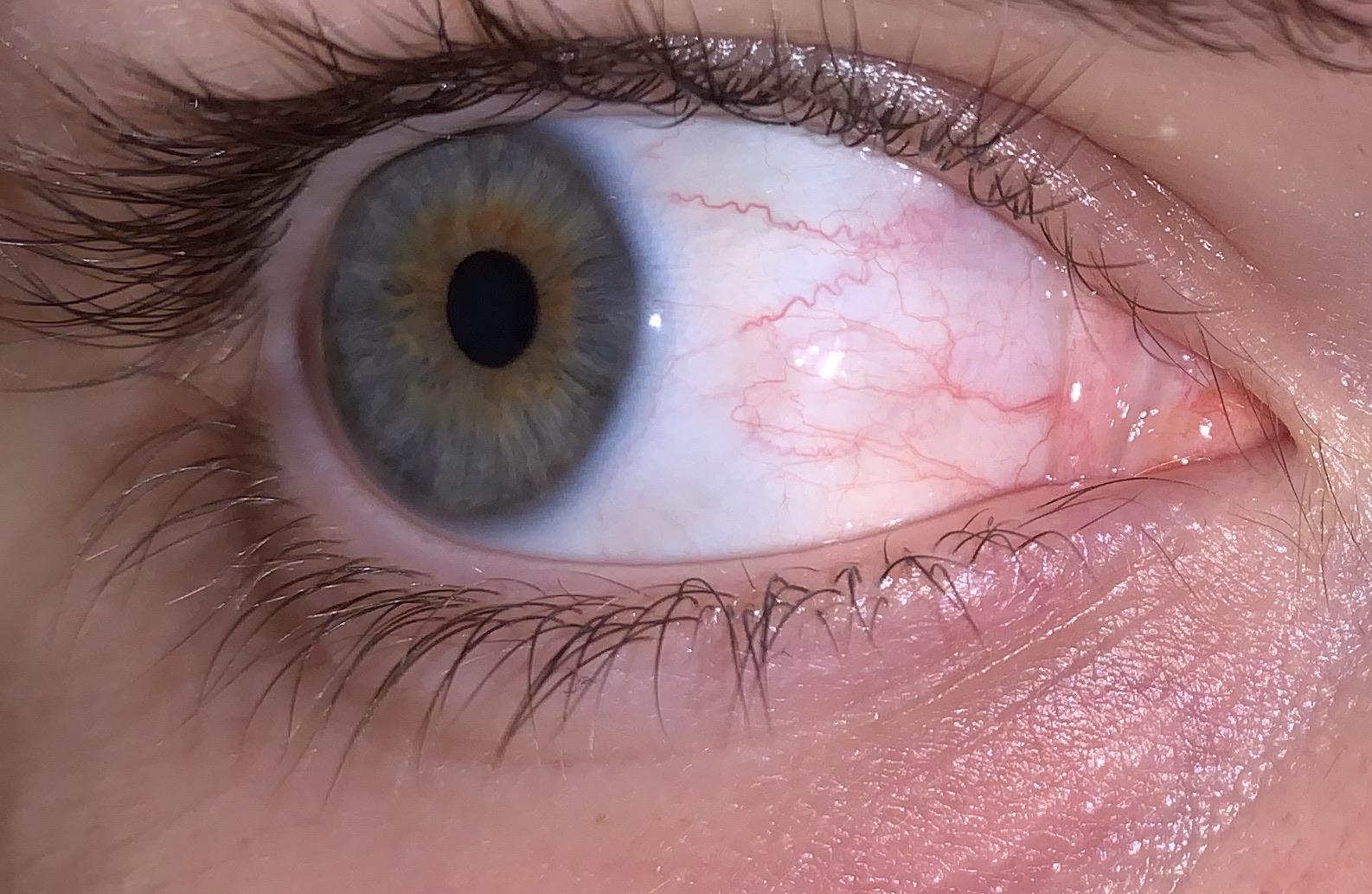
Image Source: Reddit
Prolonged exposure to high temperatures can cause your blood vessels to dilate or expand. While this is a natural response to regulate your body's temperature, it can lead to a drop in blood pressure. Low blood pressure may result in dizziness, fainting, or an overall feeling of weakness. Proper hydration and cooling strategies are essential to help maintain a stable blood pressure when facing dilated blood vessels in hot weather.
15. Electrolyte Imbalances

Image Source: 123RF
Sweating profusely in the heat can lead to significant loss of essential electrolytes, particularly sodium and potassium. These minerals play a pivotal role in various bodily functions, and their imbalance can result in muscle cramps, weakness, and even cardiac irregularities. To counteract electrolyte imbalances, it's crucial to rehydrate with electrolyte-rich fluids or supplements, especially after vigorous physical activity in hot conditions.
16. Hyperventilation

Image Source: Gaba Books
Rapid breathing, or hyperventilation, can be your body's response to cool down in extreme heat. It helps expel excess heat and bring in cooler air. However, if this continues for an extended period, it can lead to excessive loss of carbon dioxide, which may result in dizziness, tingling sensations, and confusion. Monitoring your breathing rate and taking breaks in cooler environments is advisable to maintain a healthy balance during hot weather.
17. Fatigue

Image Source: Reddit
Overheating can lead to pronounced fatigue. Your body expends significant energy trying to regulate its temperature when exposed to high heat. This expenditure, combined with potential dehydration and increased sweating, can result in exhaustion. Rest and hydration are essential to counteract this fatigue and regain your vitality when battling the heat.
18. Swollen Feet and Ankles
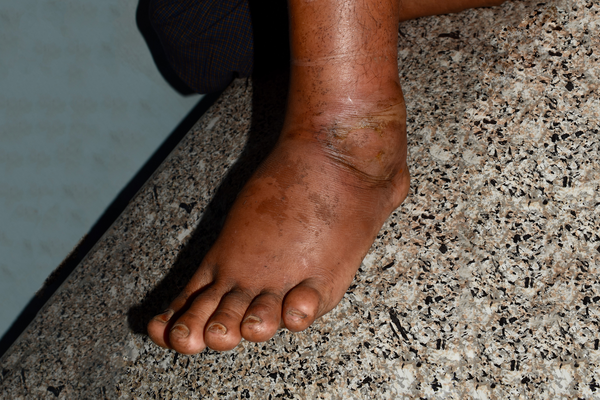
Image Source: NHS
Prolonged exposure to hot weather can sometimes lead to fluid retention, causing swelling in the feet and ankles. The heat can dilate blood vessels, allowing fluids to accumulate in these areas. Elevation of the affected limbs and cooling measures can help alleviate this swelling, ensuring your comfort and mobility.
19. Increased Respiratory Rate

Image Source: Medical News Today
In response to high temperatures, your body may accelerate its respiratory rate to facilitate heat dissipation. While this is a natural reaction, excessively rapid breathing can potentially lead to respiratory distress or hyperventilation. Maintaining proper hydration and staying in cooler surroundings can help regulate your respiratory rate and ensure efficient heat management.
20. Weakness

Image Source: Reddit
The combined effects of heat, dehydration, and increased energy expenditure to regulate body temperature can lead to reduced muscle strength and overall weakness. In extreme heat, it's essential to take frequent breaks, stay hydrated, and avoid strenuous activities to prevent excessive weakness, ensuring your ability to function effectively in hot conditions.
21. Kidney Strain
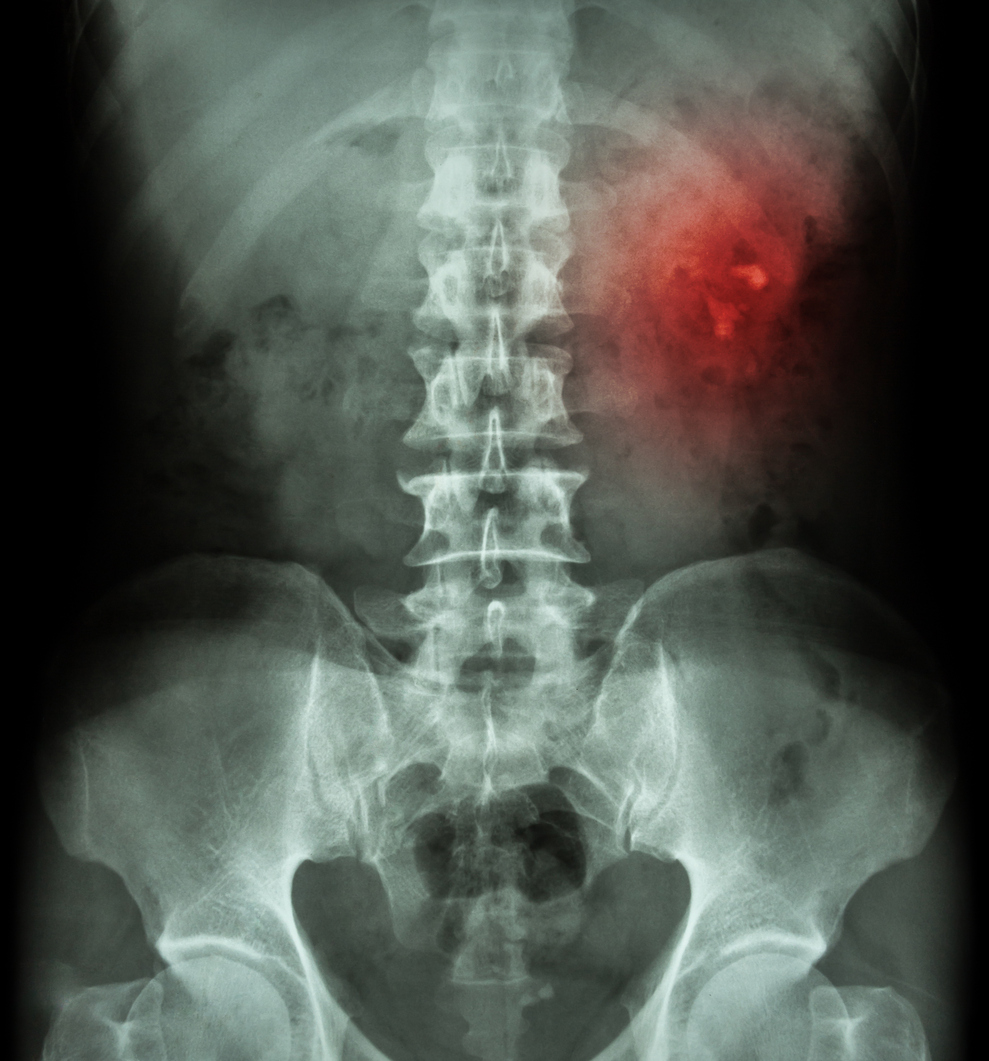
Image Source: Urology Austin
When the temperature soars, your kidneys face increased strain. Filtering waste and maintaining fluid balance becomes more challenging in extreme heat. The effort required to regulate your body's temperature can divert resources from critical kidney functions, potentially compromising their ability to eliminate waste effectively. Proper hydration and avoidance of extreme heat can help ease this strain on your kidneys.
22.Increased Risk of Heat-Related Illness

Image Source: Reddit
As temperatures rise, the risk of heat-related illnesses, such as heat cramps and heat exhaustion, escalates. Prolonged exposure to extreme heat can overwhelm your body's cooling mechanisms, causing your core temperature to spike. Recognizing the symptoms and taking preventive measures, like staying hydrated and seeking shade, is essential to avoid these debilitating conditions.
23. Sensitivity to Light
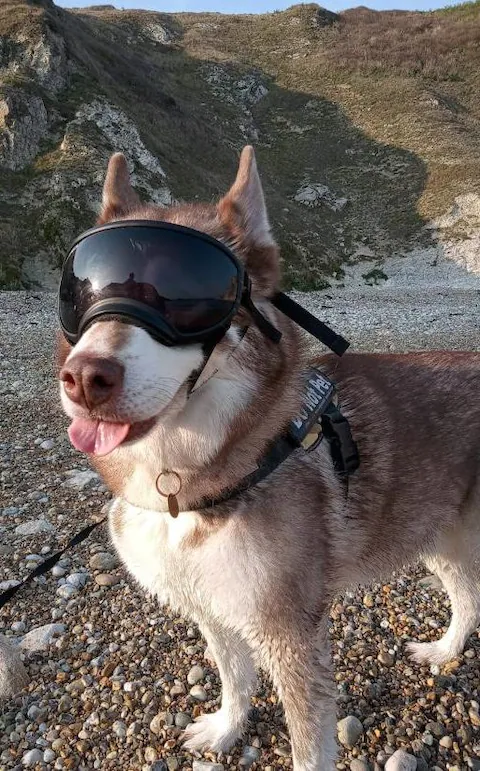
Image Source:The Telegraph
Extended sun exposure can lead to heightened sensitivity to light, affecting your eyes. Prolonged exposure to ultraviolet (UV) rays can cause photokeratitis, a painful condition similar to sunburn but affecting the corneas. Wearing sunglasses and protective eyewear can shield your eyes from the harmful effects of the sun.
24. Dry Mouth
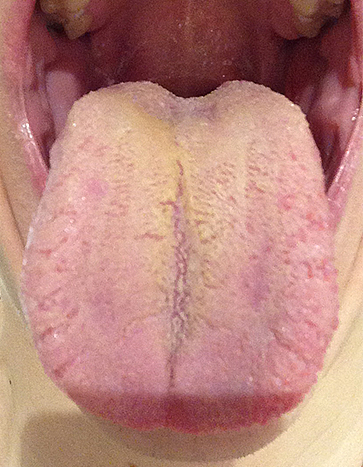
Image Source: Reddit
A dry mouth is a telltale sign of dehydration, often linked to heat. Insufficient fluid intake can disrupt your body's moisture balance, leading to discomfort and impaired function. To combat dry mouth, increase your water intake, particularly in hot weather, and avoid excessive caffeine or alcohol, both of which can contribute to dehydration.
25. Muscle Pain
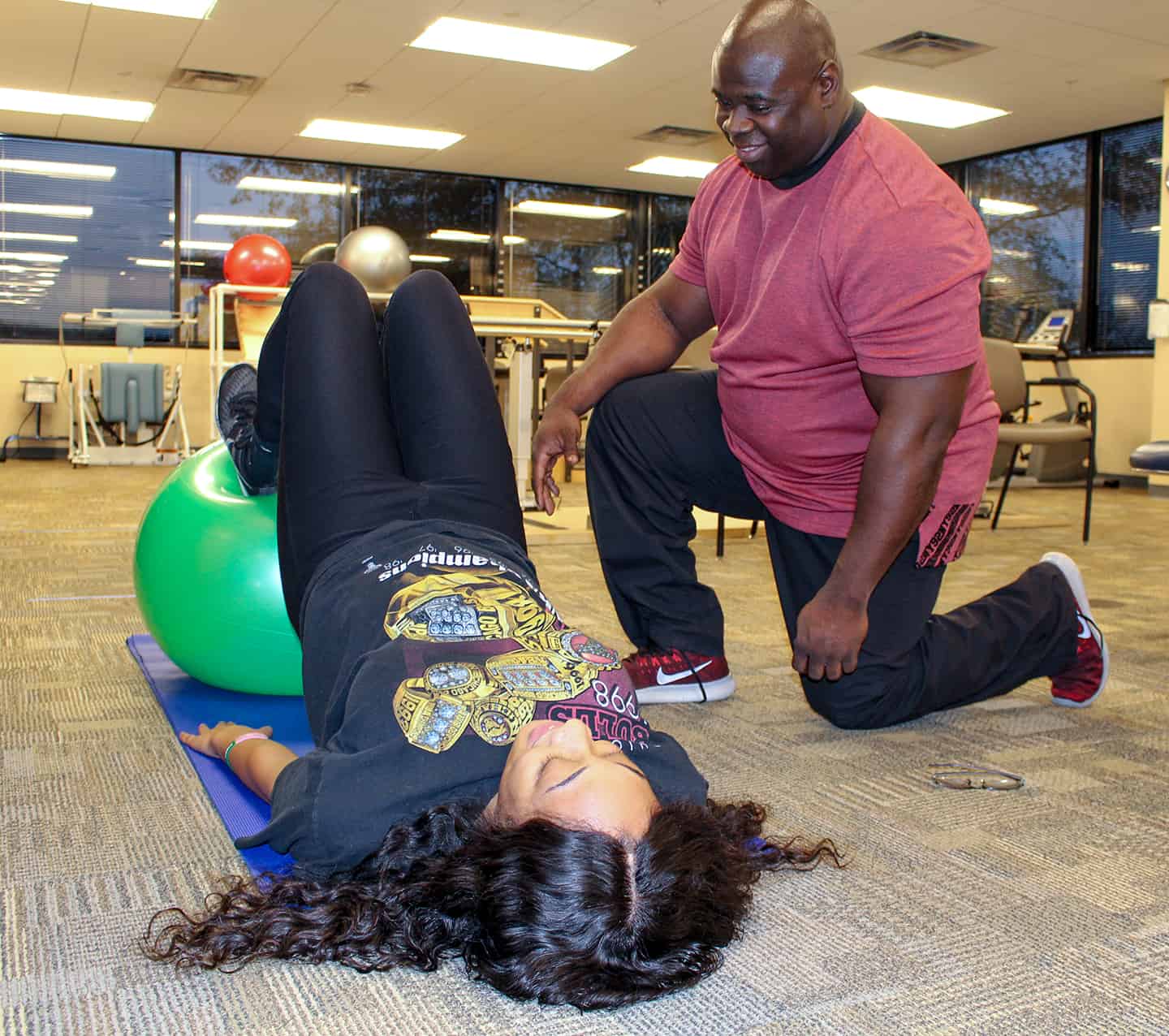
Image Source: Regional One Health
Overexertion in extreme heat can lead to muscle soreness and pain. When your muscles work tirelessly to maintain your body's temperature, they can become fatigued, leading to discomfort and aching. Rest, hydration, and gentle stretching can help alleviate this muscle pain and prevent overexertion in the heat.
26. Sluggish Cognitive Function
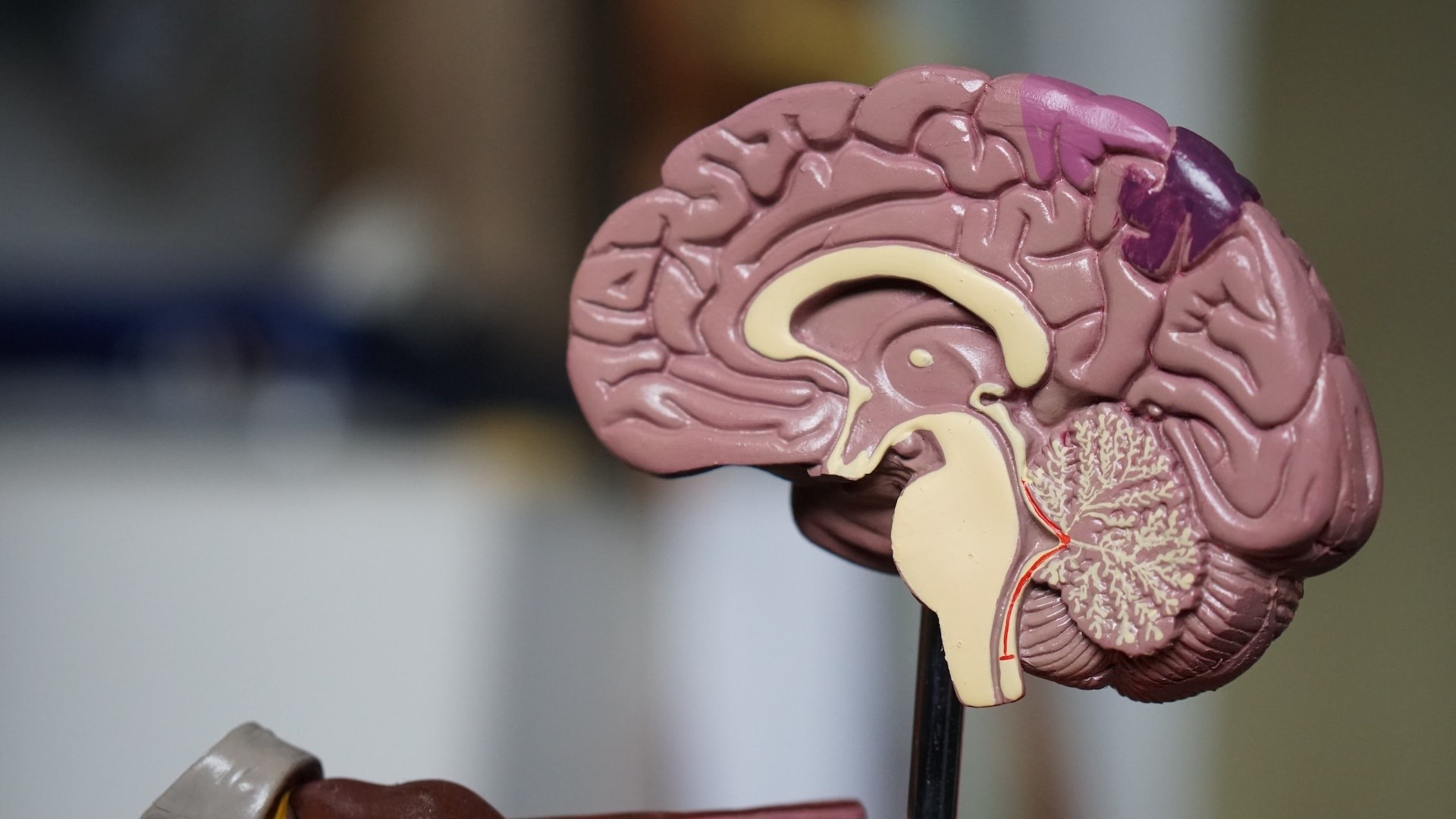
Image Source: ClickOnDetroit
Your brain's cognitive function can slow down in extreme heat. High temperatures can impair concentration, memory, and decision-making. Staying in cooler environments and maintaining proper hydration can help preserve cognitive function and mental alertness when confronting hot weather.
27. Negative Impact on Mood

Image Source: The Wall Street Journal
High temperatures can adversely affect your mood, leading to irritability, anxiety, and even depressive feelings. The discomfort and physical strain of extreme heat can take a toll on your mental well-being. Staying cool and hydrated is crucial to maintain a positive outlook and emotional balance during hot weather.
28. Elevated Body Temperature
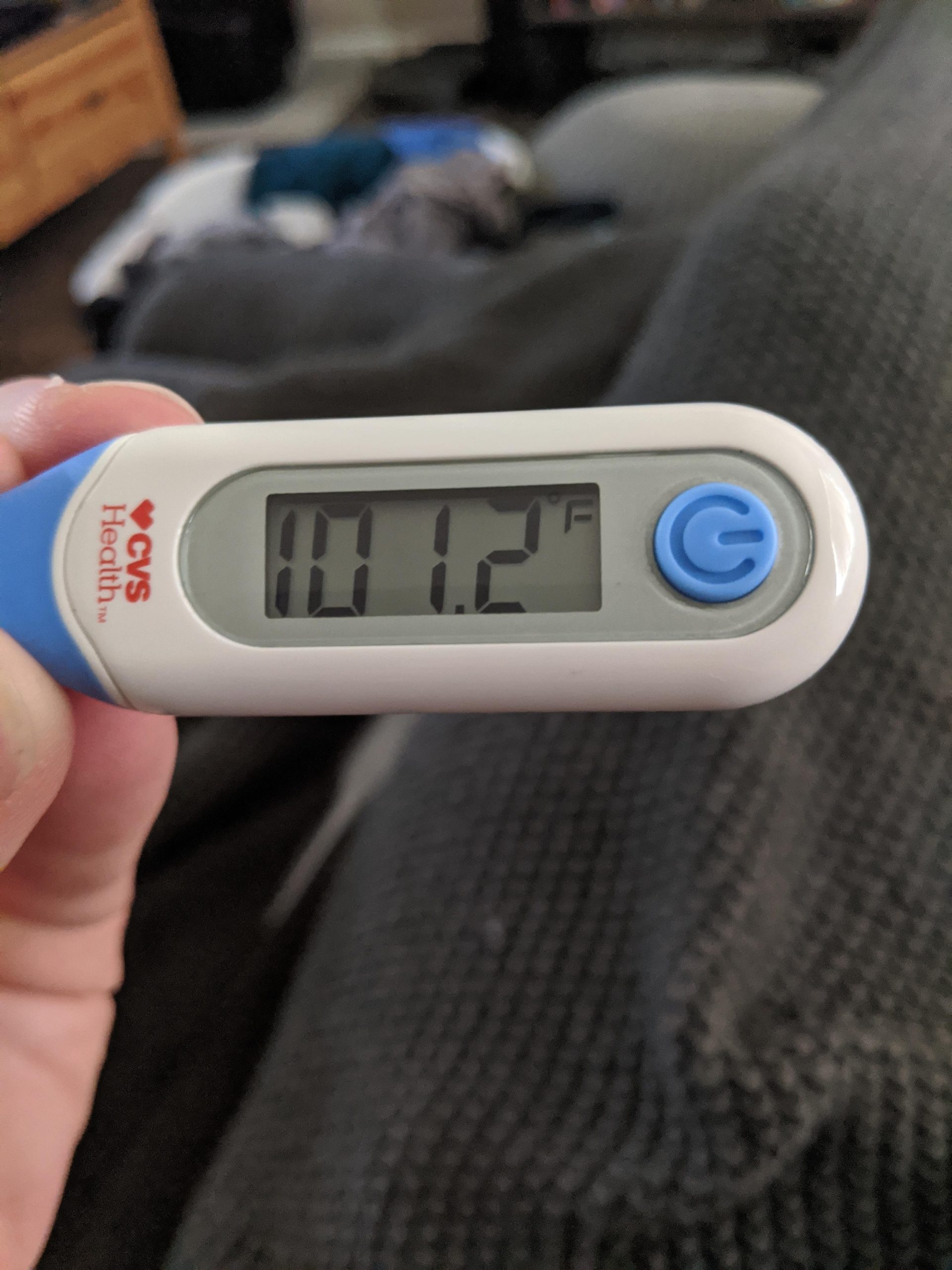
Image Source: Reddit
Your body naturally attempts to cool down in high temperatures, leading to an elevated core temperature. While this is a crucial part of the body's cooling process, a persistent high body temperature can strain your internal systems. Staying hydrated and seeking cooler environments helps manage elevated body temperature in extreme heat.
29. Impaired Judgment

Image Source: Reddit
Heat can impact your decision-making abilities. Impaired judgment may lead to risky behavior or inadequate safety measures in hot weather. It's vital to remain aware of this effect and take extra precautions, particularly when engaged in outdoor activities in high temperatures.
30. Increased Risk of Heat-Related Deaths

Image Source: Euronews.com
In extreme cases, the relentless heat can be fatal. An increased risk of heat-related deaths emerges when preventive measures aren't heeded. This underscores the critical importance of staying informed, staying hydrated, seeking shelter, and looking out for vulnerable individuals during heatwaves.





























